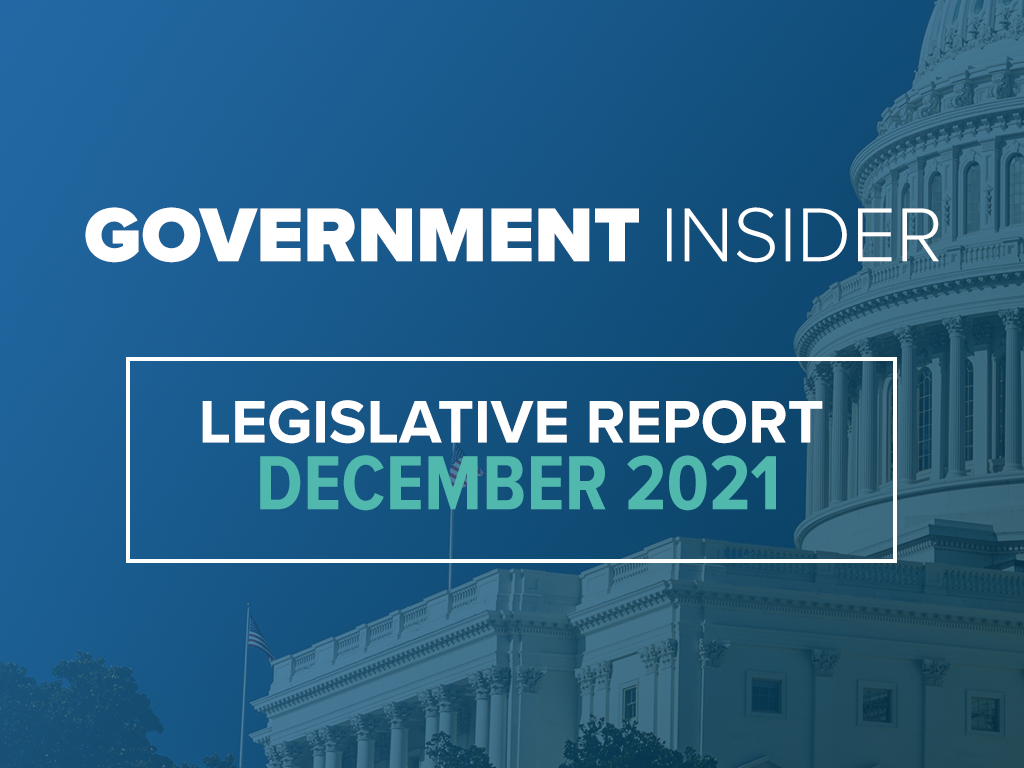Legislative Report December 2021

Here are highlights of legislative activity that could impact the electronic security and life safety industry.
Federal Legislative Summary – December 2021
As most know if you read the press and goings on in Washington, D.C., the “Build Back Better” bill pushed so very hard by the Administration and Democrats in Congress failed to get passed as planned in 2021. As we mentioned in past blogs, Senator Joe Manchin (D-WV) would be a key voice of moderation (or an obstructionist depending on your political ideology). He demonstrated this with his firm “no” to the House passed version or to any alternative that was discussed behind closed doors at the White House. Many alternate ways to accomplish what Democrats consider critical issues are surely in the works. The ‘sausage making’ continues . . .
As for monitored legislation, only one bill with a companion in the other chamber was tagged for monitoring in December. S. 3346 and H.R. 6192, cited as the “High Rise Fire Sprinkler Incentive Act of 2021” was filed on December 8th. This bi-partisan bill classifies any automatic fire sprinkler system retrofit property as 15-year property for purposes of accelerated depreciation.
Access the Members-Only Federal Legislative Report
State Legislative Summary – December 2021
We saw legislative activity begin to spring up from states across the country, from Alaska to Florida as a matter of fact.
Alaska HB 159 establishes a consumer data privacy law.
Florida has several bills being monitored this month. Among them are companion bills HB 669 and SB 1140, which provide that a person who holds a current National Institute of Certification in Engineering Technologies (NICET) Level II certification or higher in Fire Alarm Systems or Inspection and Testing of Fire Alarm Systems, a current certification as an Electronic Security Association (ESA) Certified Fire Alarm Technician (CFAT), or a current certification as an ESA Certified Fire Alarm Designer (CFAD), is required to complete only the two (2) hours of training in the prevention of false alarms required by statute.
Florida HB 1055 authorizes school districts to adopt policies placing video cameras in public school classrooms that meet certain requirements. It provides for viewing video recordings as well as Department of Education, school district, school, & certain employee responsibilities.
Florida HB 943/SB 1124 are companion bills that would preempt local governments from enacting or enforcing minimum wage rates that exceed the state minimum wage rate.
Kentucky has two (2) bills we are monitoring. BR 277 would require businesses to present automatic renewal or continuous service offer terms clearly and conspicuously to consumers before purchase and other measures designed to protect consumers who enter into continuous service contracts.
BR 494 would update employee wage requirements for employers and businesses receiving economic development tax incentives. It also increases the prevailing wage and benefit requirements.
Missouri has several bills that were prefiled in December. SB 942 creates licensing requirements for home improvement contractors and salespersons. It excludes security and fire alarm systems contractors that are licensed pursuant to any other law in the state. Other bills in Missouri touch on workers compensation, minimum wage, family leave and “anti-spoofing” related to telecommunications.
New Jersey continues to dominate the bills we must monitor, but one with particular focus should be S. 4247 and A. 6108, which just passed the Senate. This bill updates current law governing the State Board of Examiners of Electrical Contractors by moving the board from the jurisdiction of the Division of Consumer Affairs in the Department of Law and Public Safety to the Department of Labor and Workforce Development. Current registrants designated as qualified journeyman electricians are renamed “Class A journeyman electricians” and are to be licensed. Language in the bill was updated to grant current qualified journeyman electricians registered with the board a year after enactment of the bill to exchange the registration for a license as a Class A journeyman electrician with the board. After that one year, the individual will have to apply to be the board to receive the Class A journeyman electrician license. Providing services with a registration as a qualified journeyman electrician after the one year will be deemed unlicensed practice under the bill.
Two (2) fire/life safety bills in this report include Ohio HB 304, which updates fire alarm requirements in residential premises and Pennsylvania HB 860, which establishes owner and tenant responsibilities for smoke detector maintenance.
South Carolina SB 904 adds access control and video surveillance systems to the definitions for burglar and fire alarm systems. It also specifies applicability of licensing requirements for selling or attempting to sell these systems.
Tennessee HB 1652 adds consumer protection language that pertains to continuous service contracts. It requires a business that allows someone to sign up for a service or subscription online to provide the option to cancel the service or subscription online without additional steps.
Utah has two bills that impact alarm business licensing. HB 39 creates a licensing exemption for a person certified by the National Institute for Certification in Engineering Technologies (NICET) at level III or IV in Water-Based System Layout or Fire Alarm Systems. HB 40 modifies current alarm company and agent licensing provisions. It removes moral turpitude and criminal history language, and it creates a definition for “responsible management personnel”.
Finally, Washington SB 5604 replaces the certificate of registration requirement with language that bidders for public works projects be registered or licensed as may be required by the laws of this state including contractor registration in compliance with chapter 18.27 RCW.




